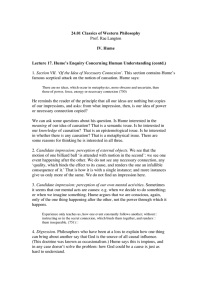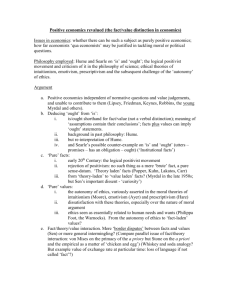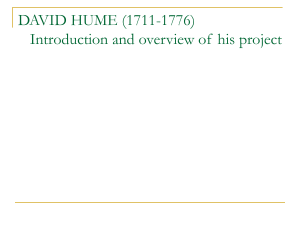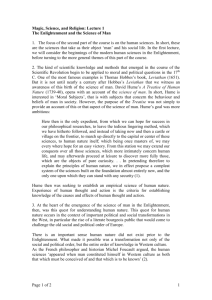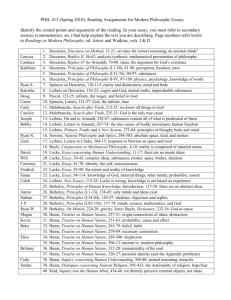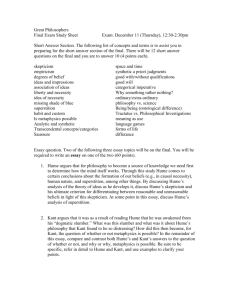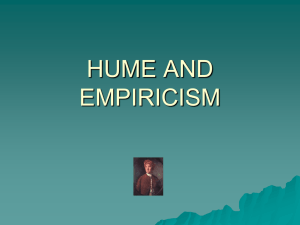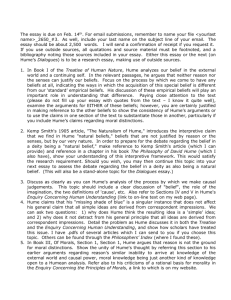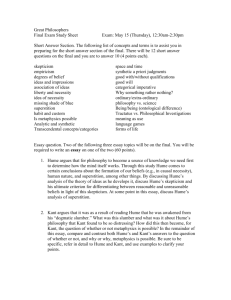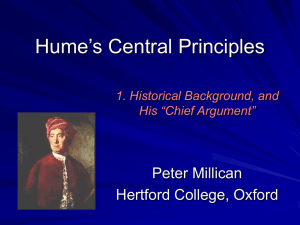Identifying Argument
advertisement
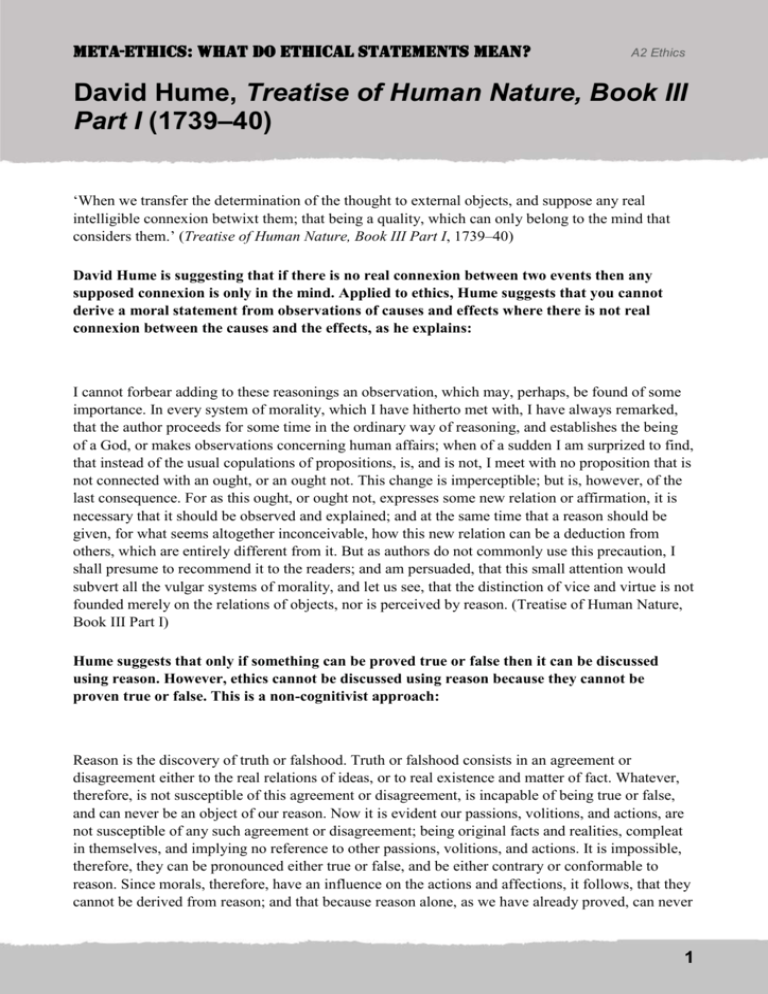
Meta-ethics: What do ethical Statements mean? A2 Ethics David Hume, Treatise of Human Nature, Book III Part I (1739–40) ‘When we transfer the determination of the thought to external objects, and suppose any real intelligible connexion betwixt them; that being a quality, which can only belong to the mind that considers them.’ (Treatise of Human Nature, Book III Part I, 1739–40) David Hume is suggesting that if there is no real connexion between two events then any supposed connexion is only in the mind. Applied to ethics, Hume suggests that you cannot derive a moral statement from observations of causes and effects where there is not real connexion between the causes and the effects, as he explains: I cannot forbear adding to these reasonings an observation, which may, perhaps, be found of some importance. In every system of morality, which I have hitherto met with, I have always remarked, that the author proceeds for some time in the ordinary way of reasoning, and establishes the being of a God, or makes observations concerning human affairs; when of a sudden I am surprized to find, that instead of the usual copulations of propositions, is, and is not, I meet with no proposition that is not connected with an ought, or an ought not. This change is imperceptible; but is, however, of the last consequence. For as this ought, or ought not, expresses some new relation or affirmation, it is necessary that it should be observed and explained; and at the same time that a reason should be given, for what seems altogether inconceivable, how this new relation can be a deduction from others, which are entirely different from it. But as authors do not commonly use this precaution, I shall presume to recommend it to the readers; and am persuaded, that this small attention would subvert all the vulgar systems of morality, and let us see, that the distinction of vice and virtue is not founded merely on the relations of objects, nor is perceived by reason. (Treatise of Human Nature, Book III Part I) Hume suggests that only if something can be proved true or false then it can be discussed using reason. However, ethics cannot be discussed using reason because they cannot be proven true or false. This is a non-cognitivist approach: Reason is the discovery of truth or falshood. Truth or falshood consists in an agreement or disagreement either to the real relations of ideas, or to real existence and matter of fact. Whatever, therefore, is not susceptible of this agreement or disagreement, is incapable of being true or false, and can never be an object of our reason. Now it is evident our passions, volitions, and actions, are not susceptible of any such agreement or disagreement; being original facts and realities, compleat in themselves, and implying no reference to other passions, volitions, and actions. It is impossible, therefore, they can be pronounced either true or false, and be either contrary or conformable to reason. Since morals, therefore, have an influence on the actions and affections, it follows, that they cannot be derived from reason; and that because reason alone, as we have already proved, can never 1 Meta-ethics: What do ethical Statements mean? A2 Ethics David Hume, Treatise of Human Nature, Book III Part I (1739–40) have any such influence. Morals excite passions, and produce or prevent actions. Reason of itself is utterly impotent in this particular. The rules of morality, therefore, are not conclusions of our reason. (Treatise of Human Nature, Book III Part I.) 2
